An ammeter A of finite resistance, and a resistor R are joined in series to an ideal cell C. A potentiometer P is joined in parallel to R. The ammeter reading is I0 and the potentiometer reading is V0. P is now replaced by a voltmeter of finite resistance. The ammeter reading now is I and the voltmeter reading is V.
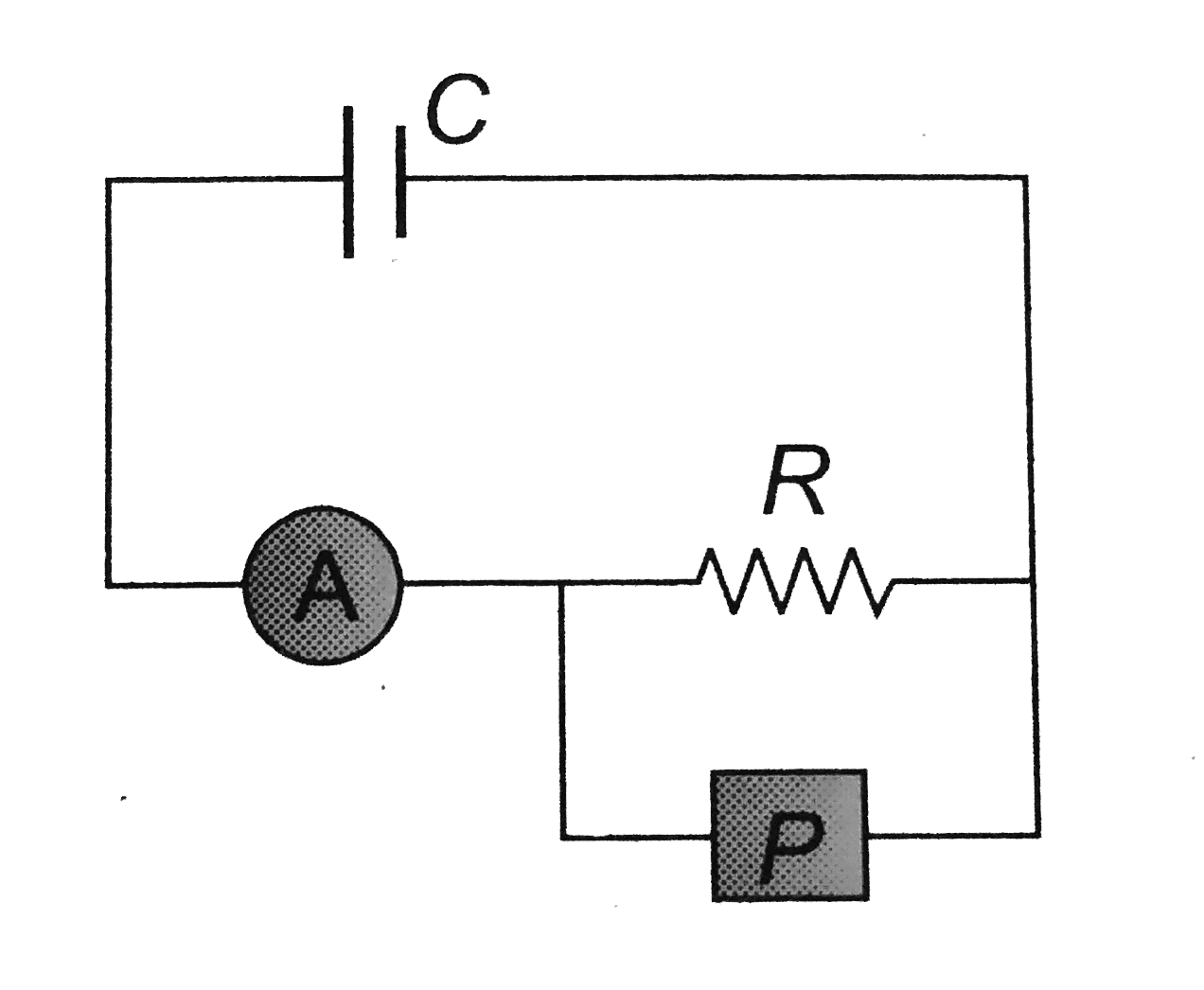
I>I0,V<V0
I>I0,V=V0
I=I0,V<V0
I<I0,V=V0
The correct Answer is:A
Since voltmeter have finite resistance, so resistance of circuit decreases so I>I0,V<V0.
Similar Questions
An ammeter A of finite resistance , and a resistor R are joined in series to an idel cell C.A potentiometer P is joined in parallel to R. The ammeter reading is I0 and the potentiometer reading is V0. P is now replaced by a voltmeter of finite resistance . The ammeter reading now is I and the voltmeter eading is V.
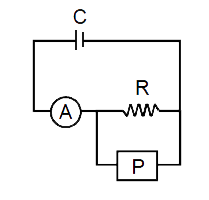
View SolutionThe ammeter A reads 2A and the voltmeter V reads 20V, the value of resistance R is (Assuming finite resistance's of ammeter and voltmeter)
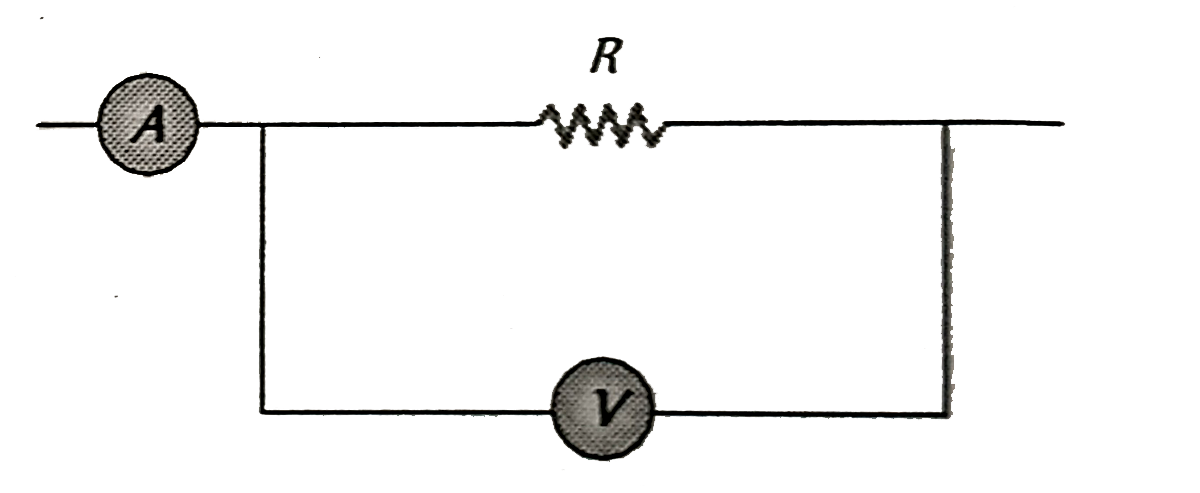
View Solution
Knowledge Check
An ammeter and a voltmeter are joined in sereis to a cell. Their readings are A and V respectively. If a resistance is now joinding parallel with the voltmeter. Then
Aboth A and V will decreaseBboth A and V will increase.CA will increase V will dec rease.DA will decrease V will increase.An ammeter, voltmeter and a resistor are connected in series to a cell and the readings are noted as I and V. If another resistor R is connected in parallel with a voltmeter, then
AI and V increaseBI increasesCI and V will remain sameDI decreases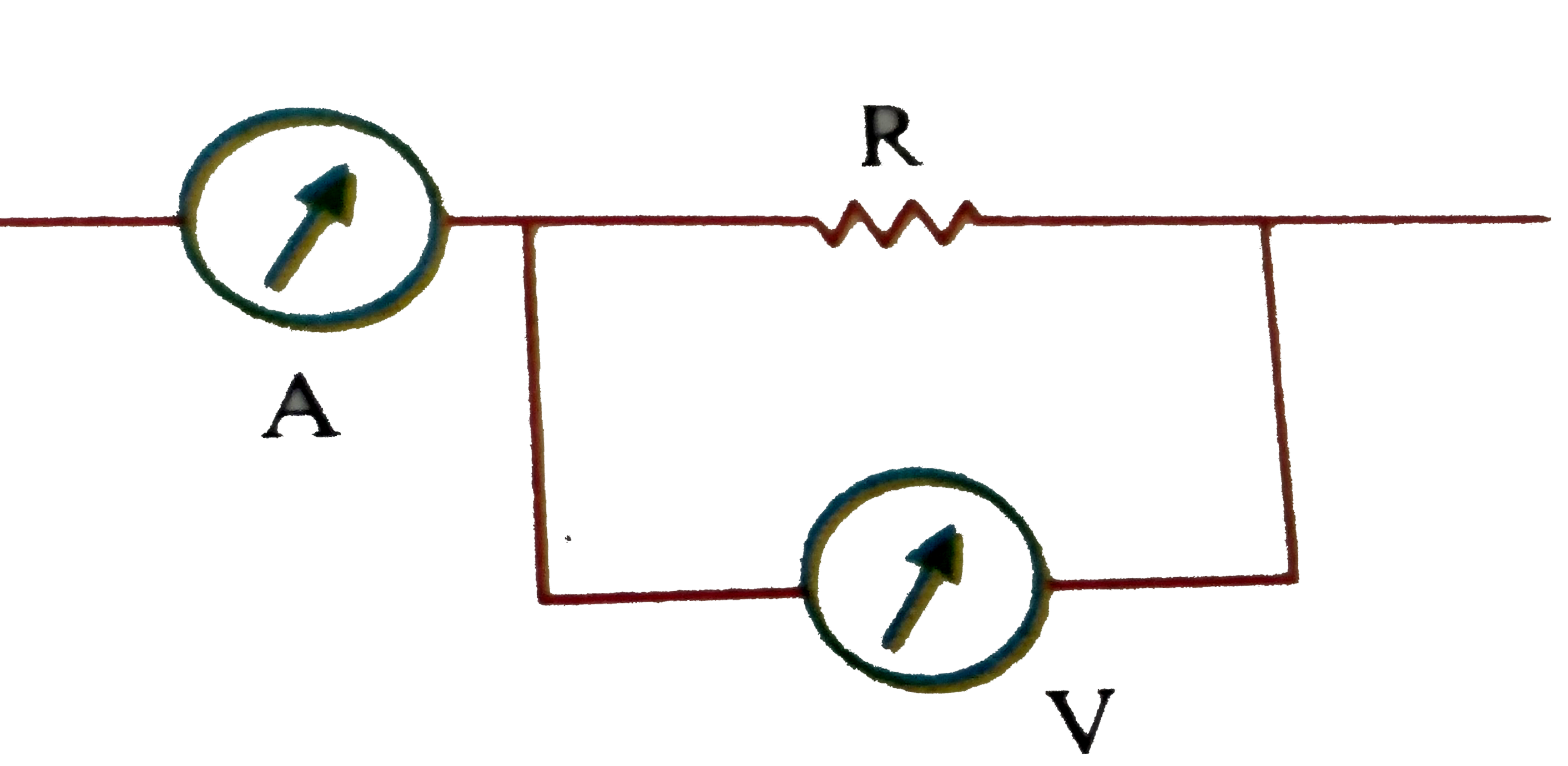
In the following diagram ammeter reading is 4A, voltmeter reading is 20V, the value of R isA>5ΩB<5ΩC=5ΩD≤5Ω
An ammeter and a voltmeter are joined in sereis to a cell. Their readings are A and V respectively. If a resistance is now joinding parallel with the voltmeter. Then
View Solution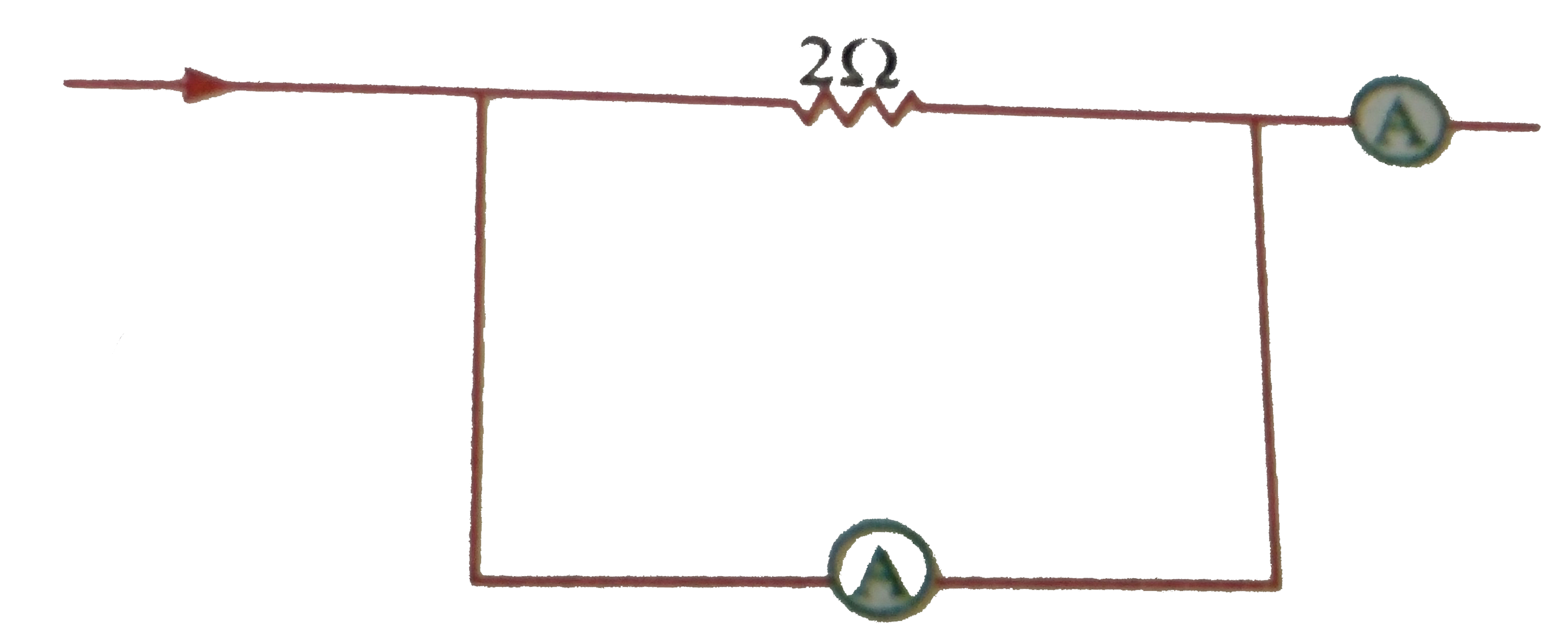
If the voltmeter reads 0.2 V and the ammeter reads 0.101A, the resistance of the voltmeter is (in ohm)
View SolutionAn ideal ammeter (zero resistance) and an idel voltmeter (infinite resistance) are connect as shows in Fig. 6.47. The ammeter and the voltmeter readings are
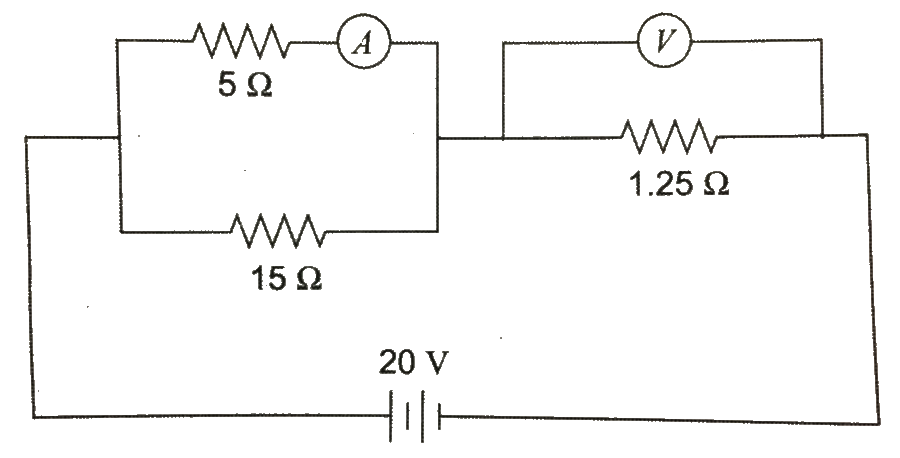
View SolutionA voltmeter and an ammeter are connected in series to an ideal cell of emfE. The voltmeter reading is V, and the ammeter readings is I. Then
(i) V<E (ii) the voltmeter resistance is V/I
(iii) the potential difference across the ammeter is E−V
(iv) Voltmeter resistance + ammeter resistance = E//I
Correct statements are
View SolutionAn ammeter and a voltmeter are connected in series to an ideal battery of emf E. If the ammeter reads I and voltmeter reading V, then
View Solution
